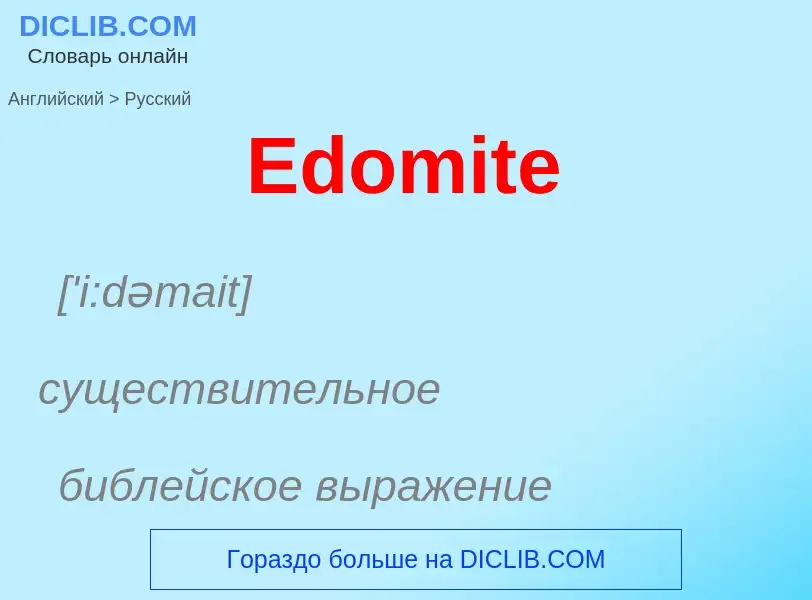Traducción y análisis de palabras por inteligencia artificial ChatGPT
En esta página puede obtener un análisis detallado de una palabra o frase, producido utilizando la mejor tecnología de inteligencia artificial hasta la fecha:
- cómo se usa la palabra
- frecuencia de uso
- se utiliza con más frecuencia en el habla oral o escrita
- opciones de traducción
- ejemplos de uso (varias frases con traducción)
- etimología
Edomite - traducción al ruso
['i:dəmait]
существительное
библейское выражение
идумей
эдомитянин
житель Идумеи
Эдома
Definición
Wikipedia
Edomite was a Northwest Semitic Canaanite language, very similar to Biblical Hebrew, Ekronite, Ammonite, Phoenician, Amorite and Sutean, spoken by the Edomites in southwestern Jordan and parts of Israel in the 2nd and 1st millennium BCE. It is extinct and known only from a very small corpus. It is attested in a scant number of impression seals, ostraca, and a single late 7th or early 6th century BCE letter, discovered in Horvat Uza.
Like Moabite, but unlike Hebrew, it retained the feminine ending -t in the singular absolute state. In early times, it seems to have been written with a Phoenician alphabet. However, by the 6th century BCE, it adopted the Aramaic alphabet. Meanwhile, Aramaic or Arabic features such as whb ("gave") and tgr ("merchant") entered the language, with whb becoming especially common in proper names. Like many other Canaanite languages, Edomite features a prefixed definite article derived from the presentative particle (h-ʔkl ‘the food’). The diphthong /aw/ contracted to /o/ between the 7th and 5th century BCE, as foreign transcriptions of the divine name "Qos" indicate a transition in pronunciation from Qāws to Qôs.

